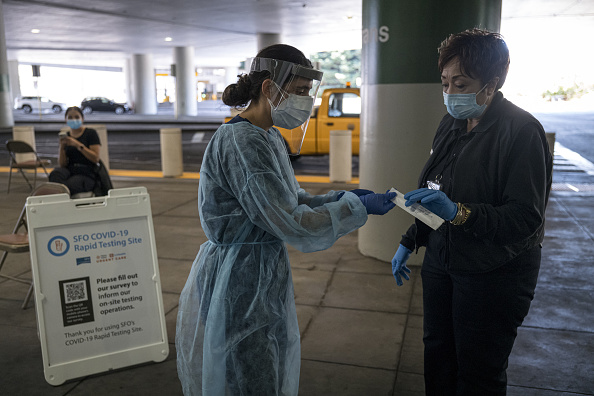
File photo: CGTN
The U.S. Centers for Disease Control and Prevention (CDC) on Tuesday set an Oct. 16 deadline for states to submit plans for distributing COVID-19 vaccines – even before it becomes clear when any will be available – according to a presentation to a panel of experts who make recommendations on U.S. vaccines.
The plan is to take into account specific requirements, such as cold storage necessary for vaccines currently in late-stage clinical trials by Pfizer Inc and Moderna Inc, provided to the states on Sept. 16.
The Advisory Committee on Immunization Practices (ACIP), a group of external medical experts that advises the CDC, had been expected to vote on Tuesday on which population groups should get scarce initial doses of any vaccine that receives approval or emergency use authorization from U.S. regulators.
A CDC spokeswoman said on Tuesday the vote would not take place, without providing a reason. The next panel meeting is scheduled for Oct. 28 and 29.
Once the U.S. Food and Drug Administration (FDA) authorizes a vaccine, ACIP will call an emergency meeting to make specific recommendations on distribution priorities, according to ACIP panel member Dr. Beth Bell of the University of Washington.
Bell said the recommendations could be narrower than guidance provided by the FDA for an emergency use authorization. ACIP's recommendations will be delivered to CDC Director Dr. Robert Redfield, who is tasked with making the final decision on how the vaccines will be used.
When asked by a panel member how states could develop distribution plans by the October deadline, even before a specific vaccine is approved or authorized, Dr. Nancy Messonnier, director of the CDC's National Center for Immunization and Respiratory Diseases, said the aim was to be ready "on the first day we can actually distribute vaccines."
Vaccine distribution is expected to occur in a phased manner, with healthcare personnel, essential workers, people with high-risk medical conditions and adults over age 65 likely to receive vaccines in the first phase, according to a meeting presentation here posted on the agency's website.
In addition to Pfizer and Moderna, AstraZeneca Plc has a vaccine in the final stage of testing. The U.S. trial of that vaccine remains on hold as a potential safety issue is investigated.
People's faith in vaccine inoculation
In May, a result from The Associated Press-NORC Center for Public Affairs Research poll shows that only about half of Americans say they would get a COVID-19 vaccine if the scientists working furiously to create one succeed.
"I am not an anti-vaxxer," Melanie Dries, 56, of Colorado Springs, Colorado told CBS. But, "to get a COVID-19 vaccine within a year or two ... causes me to fear that it won't be widely tested as to side effects."
"With just weeks until the election, the pressure on the FDA to quickly approve a vaccine will mount. But the more the timeline is politicized, the more vaccine hesitancy will grow," Dr. Ashish K Jha, Dean of the Brown University School of Public Health, wrote in an article published in Time magazine, adding that American people's faith in the upcoming COVID-19 vaccine has fallen to record low due to the politicization of the issue.
But CDC has been working on a plan to boost "vaccine confidence" as part of the federal effort to develop a vaccine,
Increasing politicization of key regulatory bodies and unexplained decisions in trial procedures threaten to undermine the entire vaccine project that the Trump administration has spent 10 billion U.S. dollars, he pointed out.
He believes only transparency can stem the tide of skepticism, and called on the FDA to rigorously follow the science before approving the vaccine.


